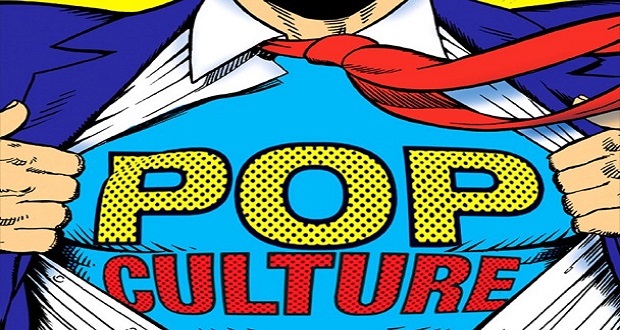Rise by Six: Your Daily Dose of Inspiration
Explore insights and stories that elevate your day.
Pop Culture Time Machines: How Nostalgia Shapes Our Favorites
Discover how nostalgia creates pop culture time machines, shaping our favorites and sparking unforgettable moments. Dive in now!
The Power of Nostalgia: How Past Trends Influence Modern Pop Culture
The influence of nostalgia in shaping modern pop culture is profound and pervasive. From vintage fashion revivals to reboots of beloved television series, past trends have a remarkable ability to resonate with today’s audience. For example, the resurgence of 90s aesthetics in recent years is not merely a reflection of the era but a nostalgic longing for a simpler time. This connection to the past often manifests in art, music, and film, where creators draw inspiration from the cultural touchstones that defined previous generations. Nostalgia acts as a bridge, linking the current cultural landscape with the sentiments and experiences of earlier decades.
Moreover, nostalgia can serve as a powerful marketing tool, harnessing emotional connections to drive engagement and consumer interest. Brands that effectively leverage nostalgic elements in their campaigns often evoke strong responses, tapping into shared memories and values. For instance, the revival of classic snacks or toys generates excitement not only among those who experienced them first-hand but also among younger audiences curious about past trends. This cycle of cultural revival and reinterpretation creates a dynamic interplay between generations, ensuring that the echoes of the past continue to shape and influence modern pop culture.

Retro Revival: The Impact of 80s and 90s Nostalgia on Today's Entertainment
The phenomenon of 80s and 90s nostalgia has surged in recent years, significantly shaping today's entertainment landscape. Streaming platforms are now filled with reboots and remakes of iconic films and TV shows from these decades, captivating audiences both young and old. This revival can be seen in series like Stranger Things and movies such as IT, which successfully incorporate the aesthetic, themes, and cultural references of the past, striking a chord with viewers. The resurgence not only provides a sense of comfort and familiarity but also introduces a new generation to the vibrant creativity of that era.
Moreover, elements of 80s and 90s nostalgia are permeating various aspects of popular culture, including music, fashion, and gaming. Soundtracks featuring synth-driven melodies and throwback beats evoke memories of a simpler time, while fashion trends like high-waisted jeans and scrunchies are making a comeback. In the gaming sphere, classic consoles and pixelated graphics are enjoying renewed interest, proving that the charm of retro gaming remains an irresistible draw. This revival illustrates how the past can seamlessly intertwine with the present, enriching the cultural fabric of today's entertainment.
Why Do We Keep Coming Back? Exploring the Psychology Behind Nostalgia in Media
Nostalgia is a powerful emotion that often draws us back to certain media—movies, shows, or even games—that shaped our formative years. Within the realm of psychology, this phenomenon is linked to our longing for comfort and familiarity. When we engage with nostalgic content, the brain releases dopamine, a neurotransmitter associated with pleasure and reward. As we immerse ourselves in a beloved film or series, we recreate those cherished memories, often feeling a sense of belonging that may be lacking in our current lives. This cyclical attraction to nostalgia not only evokes fond feelings but actively reinforces our desire to revisit those experiences repeatedly.
Research suggests that nostalgic media can serve as a coping mechanism during times of uncertainty or stress. By revisiting familiar narratives and characters, we provide ourselves with a sense of stability and control. For instance, characters from our childhoods often embody values and ideals we hold dear, allowing us to find solace in their stories. Additionally, the psychological comfort derived from engaging with nostalgic content can foster social connections, as we share these experiences with others who reminisce about the same classics. In this way, nostalgia not only serves as a trip down memory lane but also strengthens our social bonds, making us feel less isolated in an ever-evolving world.